Fuente: Emiliano López Mónica Rivera Arquitectos
Fotografía: José Hevia, Juande Jarillo
ES.
Las casas, compactas y verticales, emergen de un terreno accidentado interviniendo al mínimo en la topografía natural del terreo y apostando por la conservación de la vegetación existente de especies mediterráneas de sotobosque. Se preserva el ambiente y se mantiene la impresión de que lugar apenas ha cambiado tras la intervención.
Los espacios interiores, de escala íntima, se encadenan entre sí, sin necesidad de pasillos, en una secuencia de estancias de distinto tamaño y altura. Los usos de las estancias se definen mediante la relación con el exterior, ya sean las vistas a lo lejos del mar, la visión de las copas de los pinos o las salidas directas al terreno.
La estructura de madera de pino radiata contralaminada incorporan dos capas de corcho de 50mm de grosor cada una. La primera capa se adhiere a la madera de forma mecánica en fábrica y la segunda se adhiere con mortero de cal una vez finalizado el montaje. El conjunto permite la difusión del vapor.
La producción de calefacción se realiza mediante aerotermia por suelo radiante bajo un pavimento de baldosas cerámicas que incrementan la inercia térmica del edificio. En verano las ventanas de madera proyectantes permiten regular y fijar su abertura para conseguir una ventilación constante. La sombra de los pinos protegen las ventanas de los rayos del sol. Ambas casas obtuvieron la calificación energética clase A con un consumo de energía de 41,44 y 46,22 kWh/m2 al año y unas emisiones de 7,04 y 7,88 kg de CO2/m2 al año.
EN.
The houses, compact and vertical, emerge from an uneven terrain in which an attempt has been made to intervene as little as possible in the natural topography of the land, while committing to conservation of the existing vegetation, enhancing it with new plantings of Mediterranean varieties of underbrush. In this way the environment is preserved and the impression given of a place that has hardly changed after the intervention.
Intimate in scale, the indoor spaces are linked to one another without the need for passageways in a sequence of rooms of varying size, their uses being defined by their relationship to the outside, be it the distant view of the sea, the vision of the tops of the pines or the direct means of access to the terrain.
The walls and ceilings of radiata pine from the Basque Country incorporate two layers of 50mm thick cork each one. The first layer is mechanically anchored to the wood and the second is attached with lime mortar. The façade set allows vapor dispersion.
Heating is produced aerothermally via underfloor heating beneath a flooring of ceramic tiles that increases the building thermal mass. In summer the adjustable casement wood windows provides constant ventilation. The shade given by the pines protects the windows from the rays of the sun. Both houses obtained a Class A energy rating with an annual energy consumption of 41.44 and 46.22 kWh/m2 and emissions of 7.04 and 7.88 kg of CO2/m2 a year.
Esta entrada aparece primero en HIC Arquitectura http://hicarquitectura.com/2020/08/emiliano-lopez-monica-rivera-arquitectos-dos-casas-de-corcho/

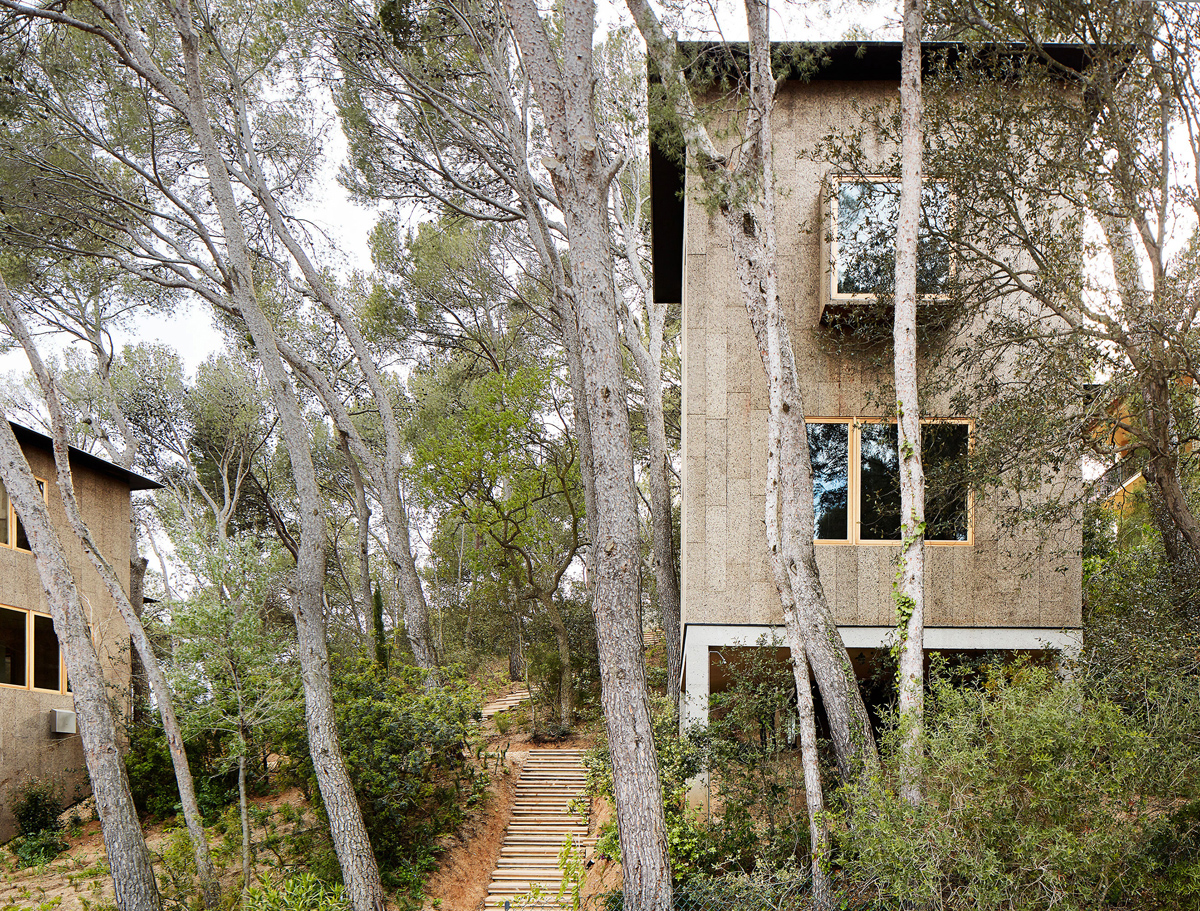

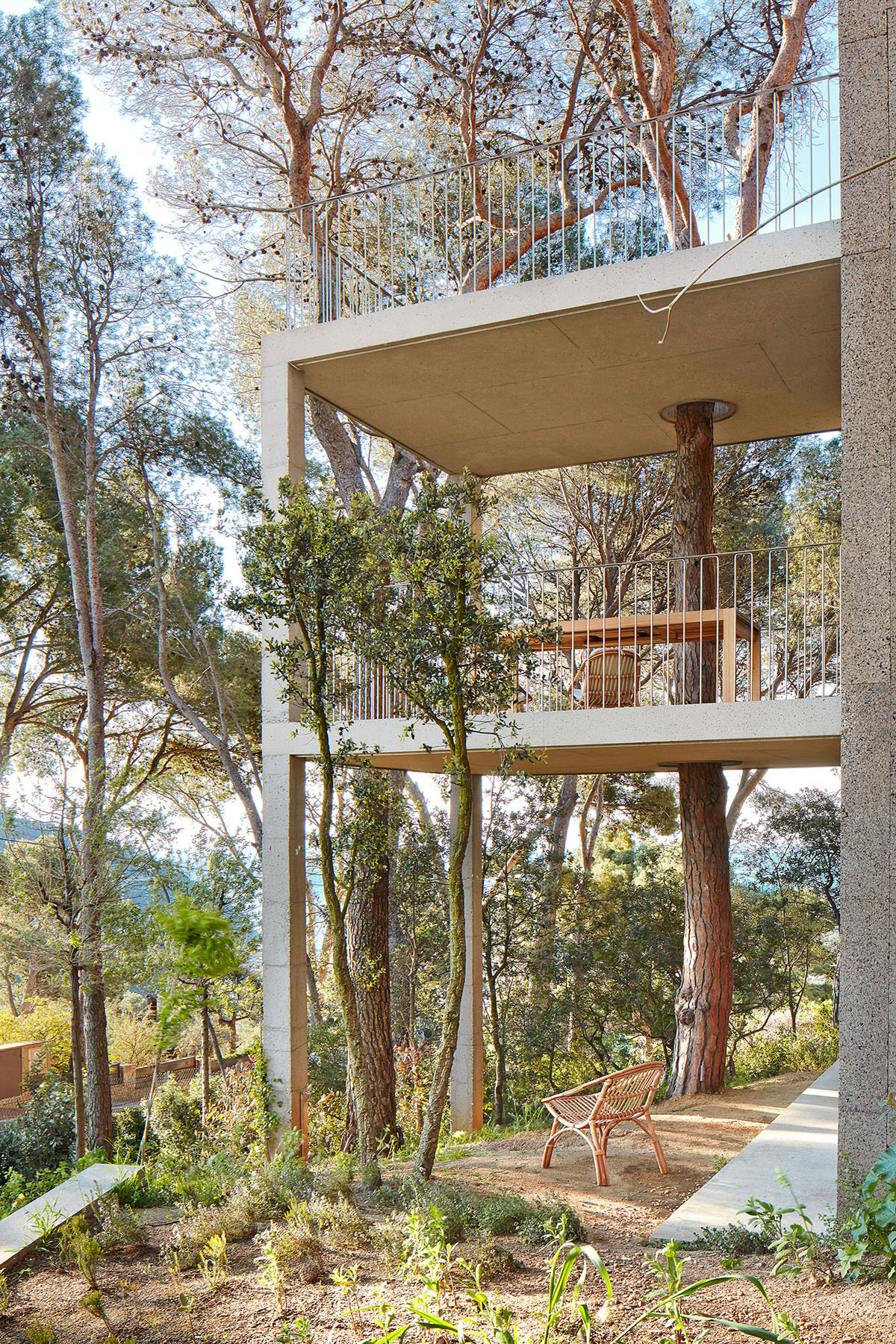
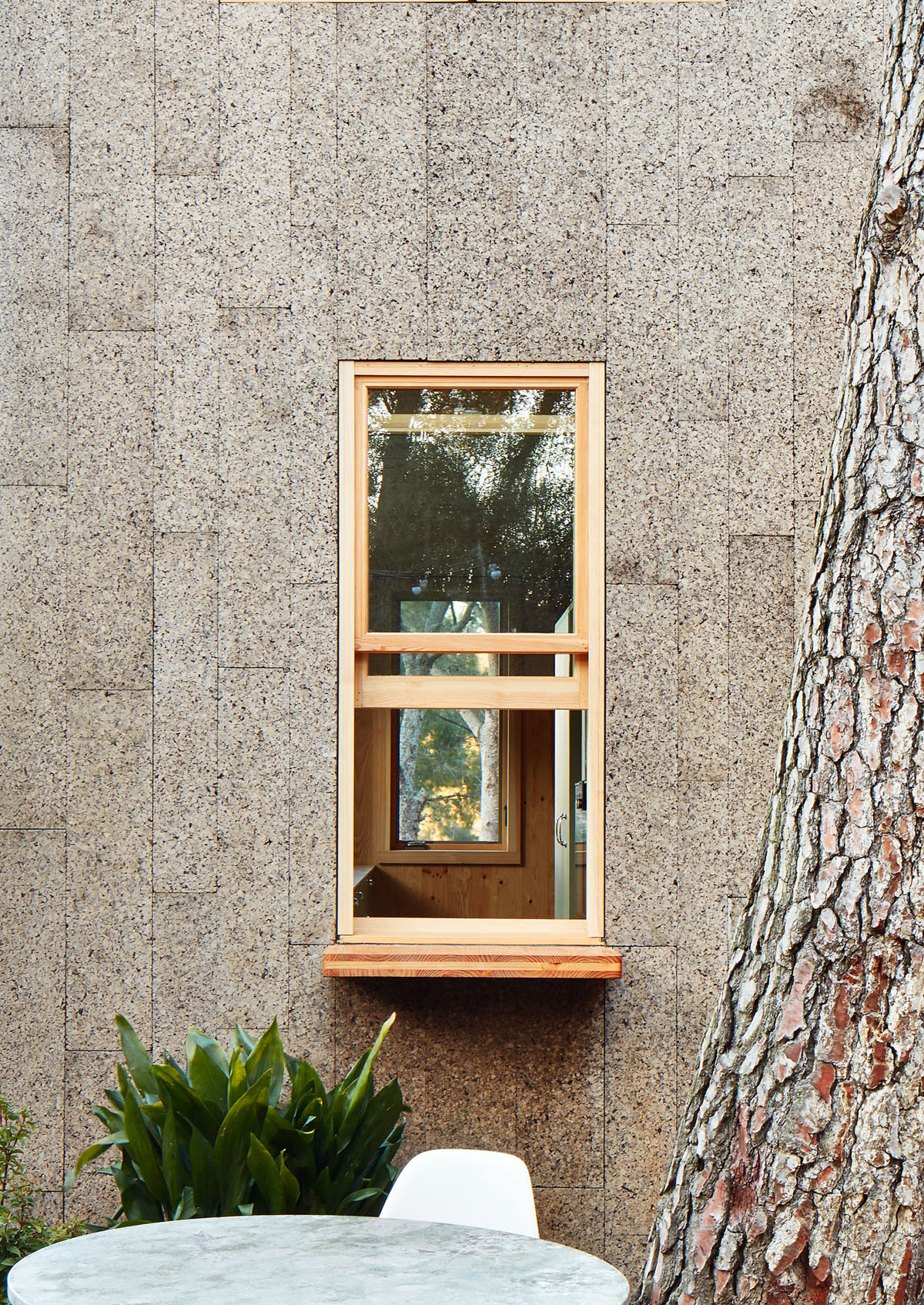


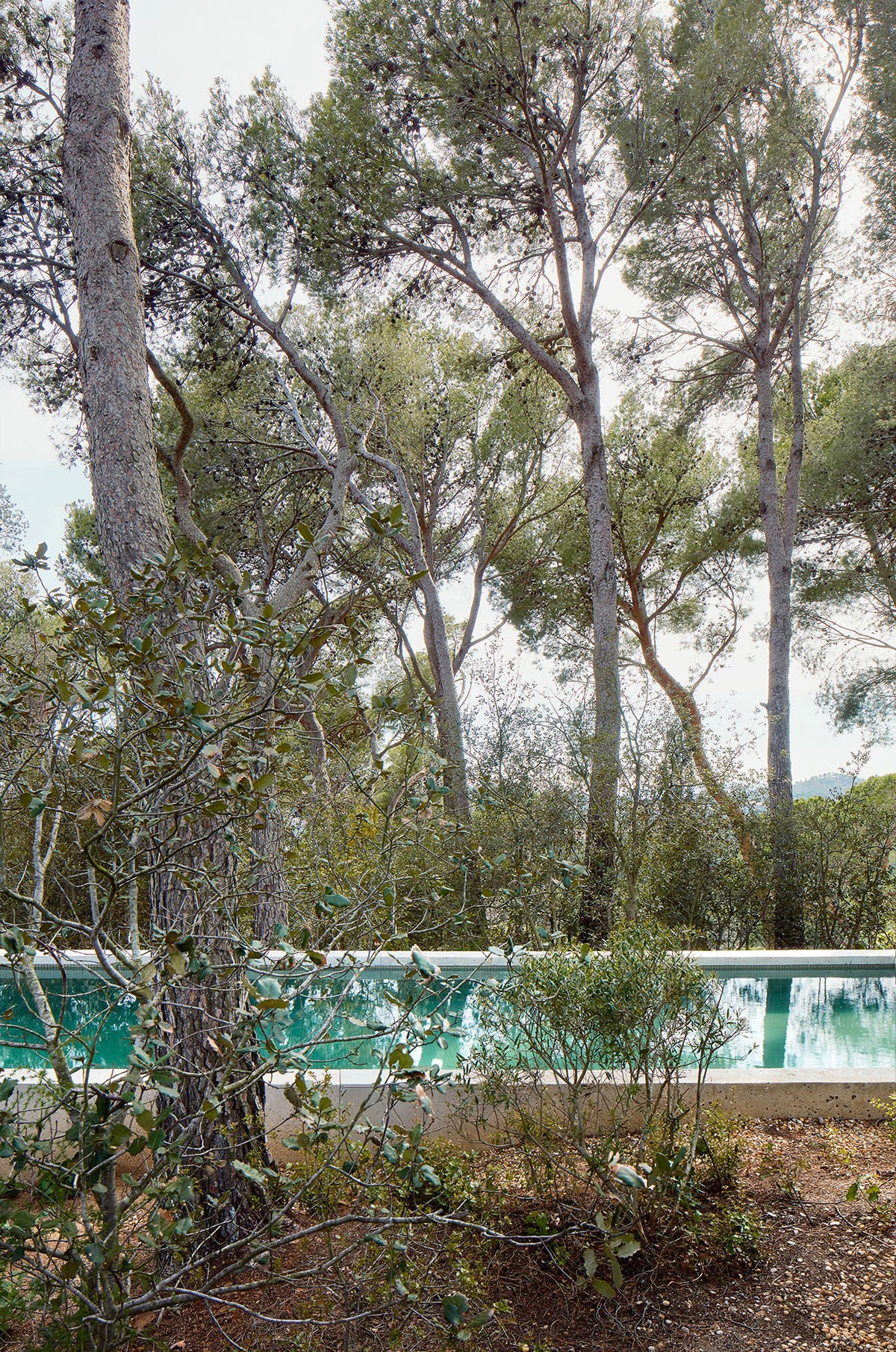
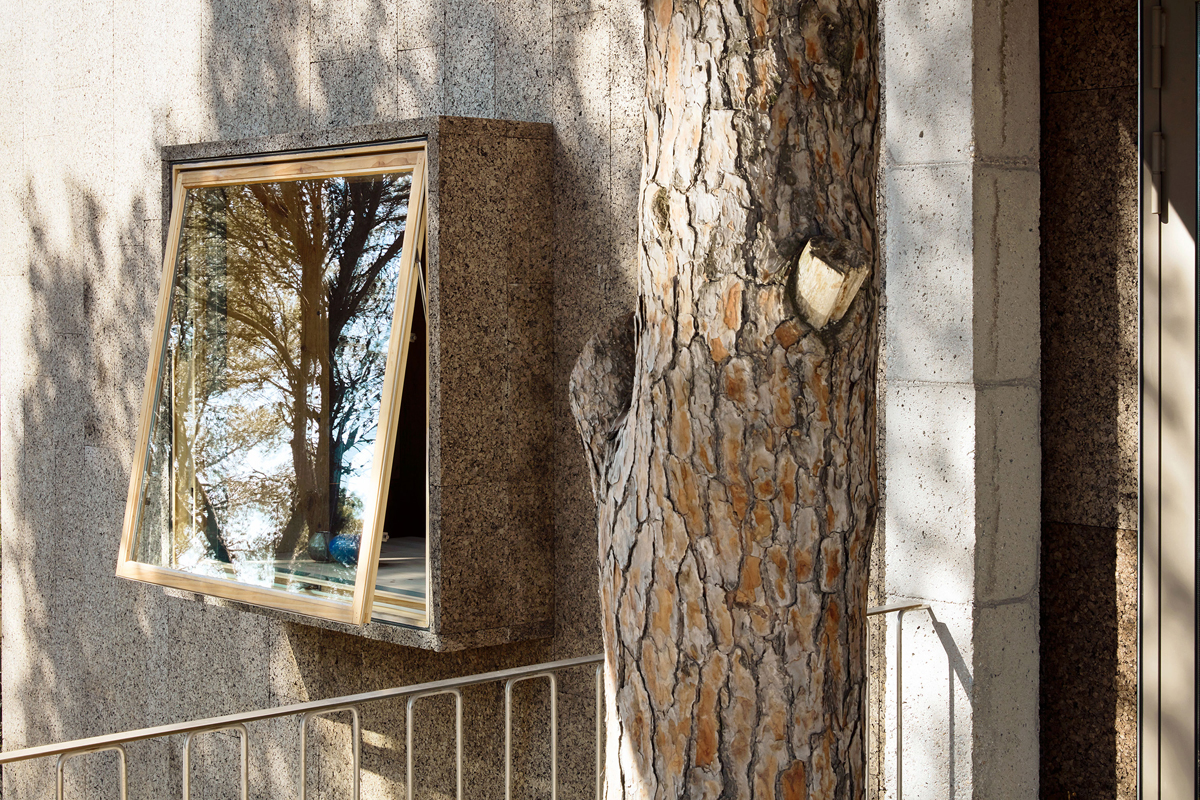

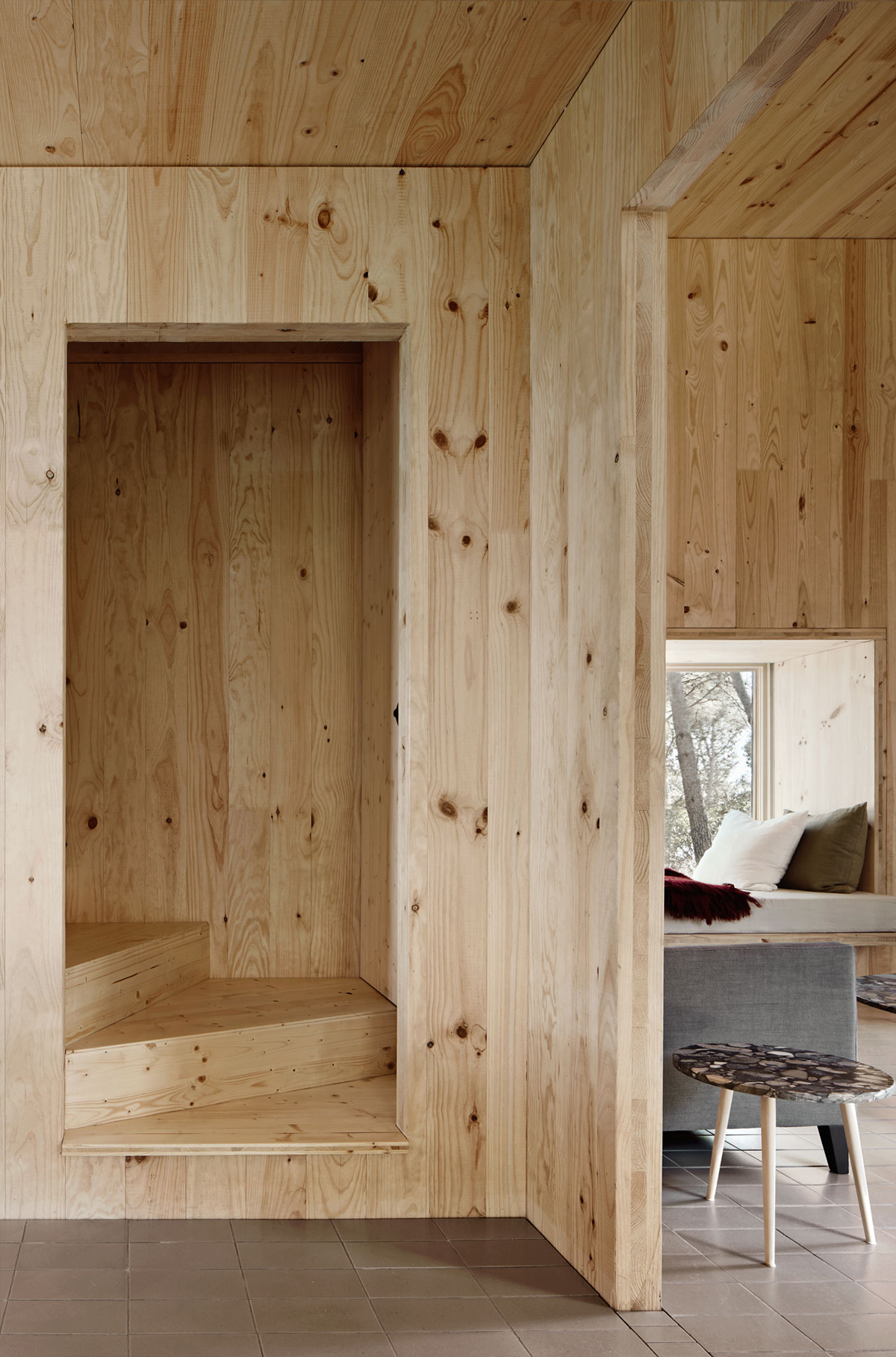
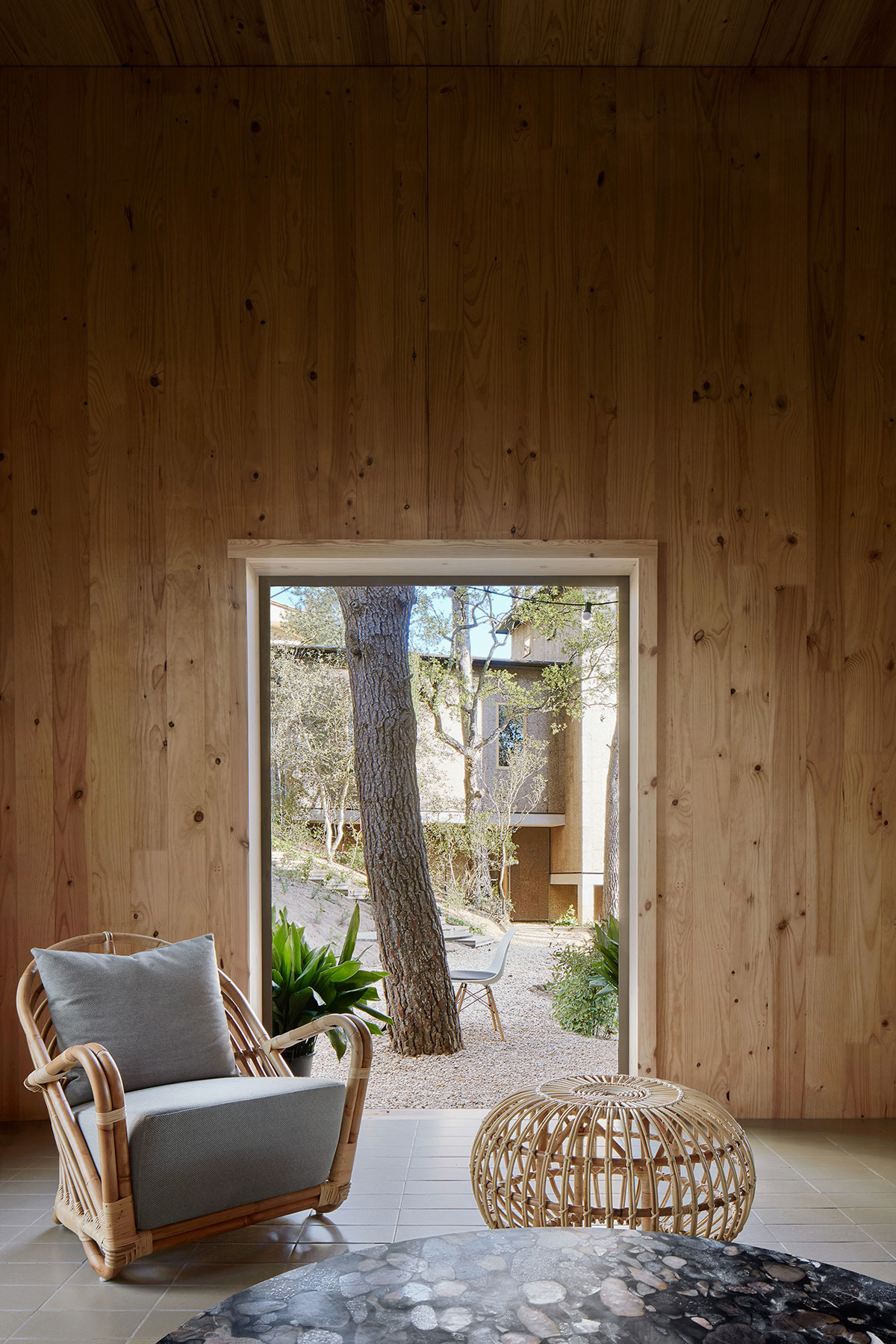
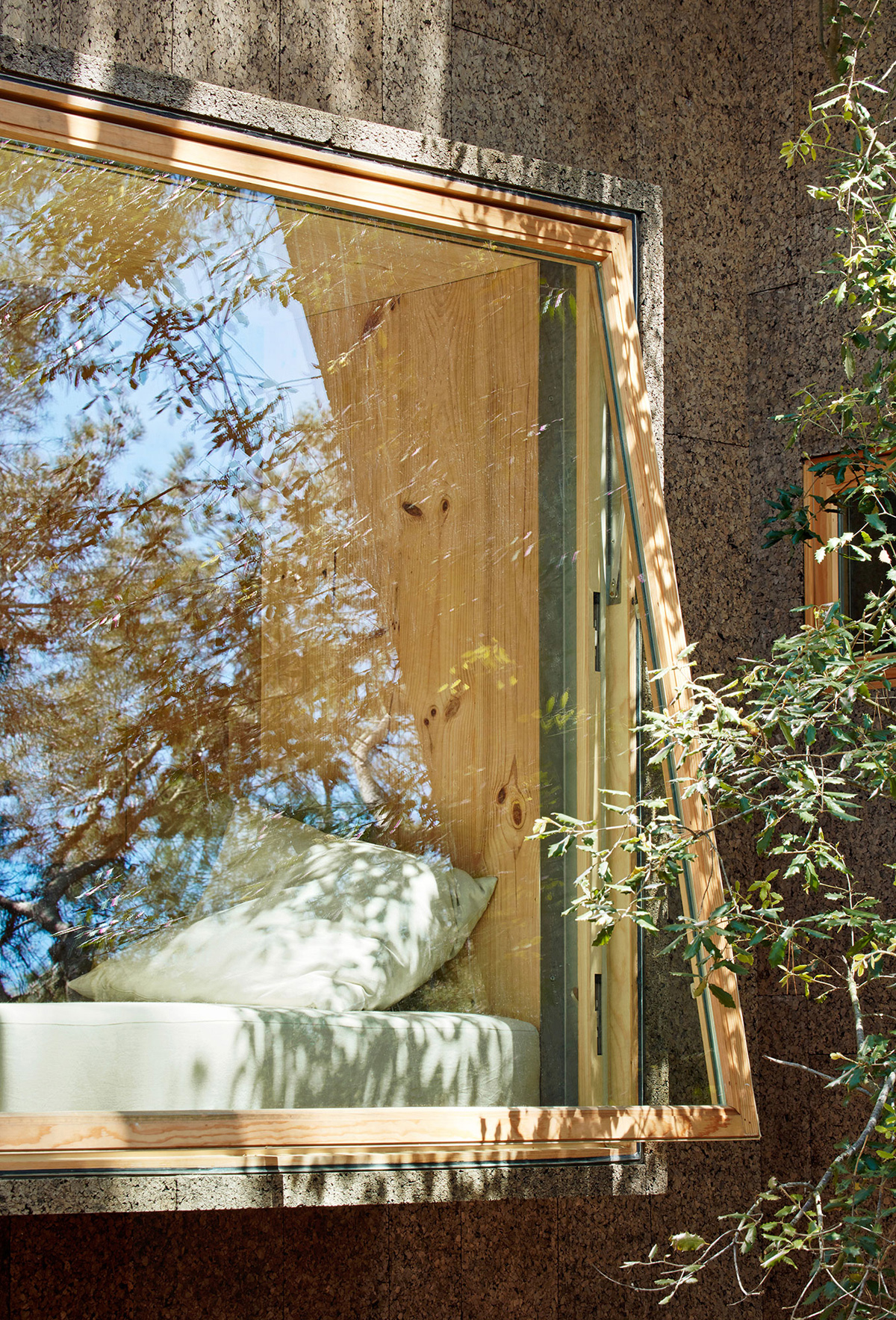
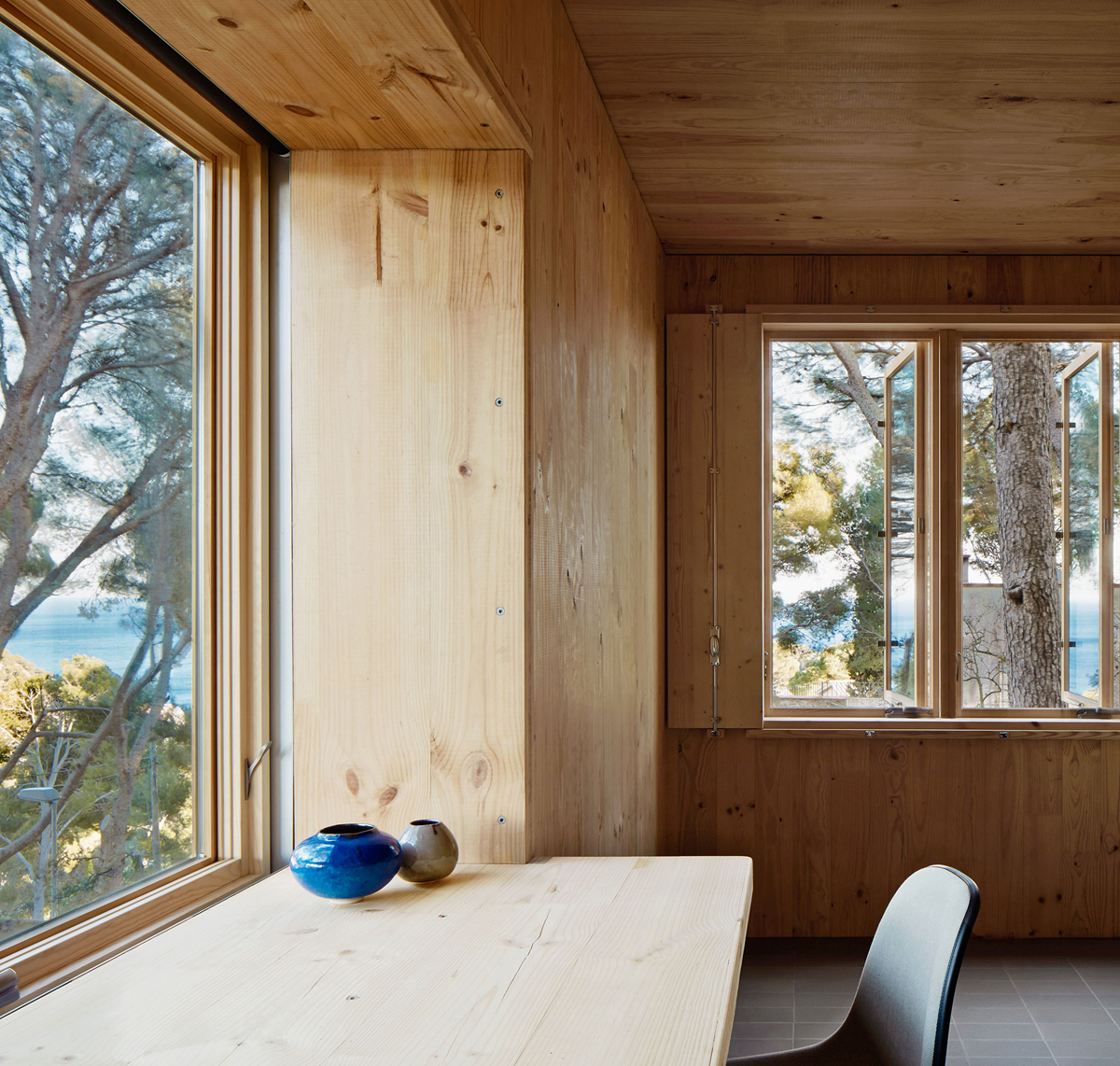
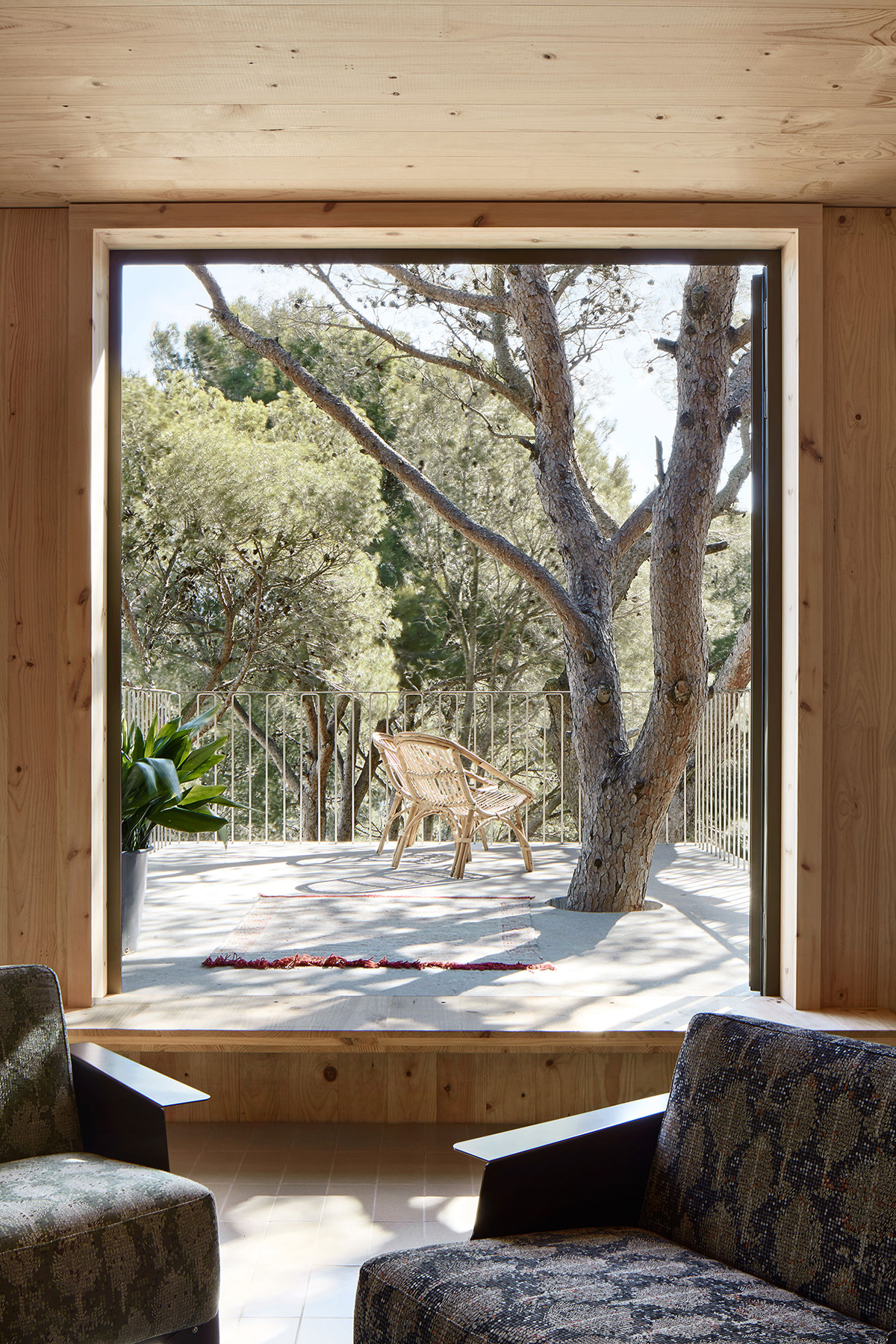

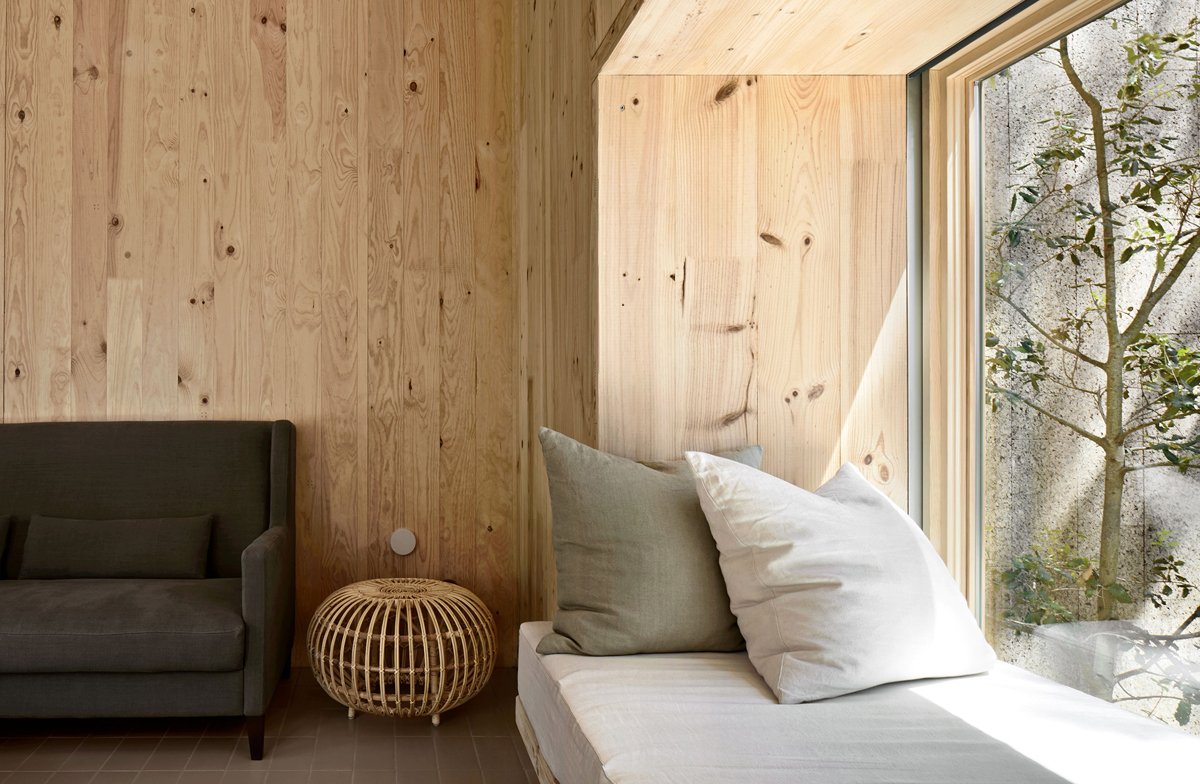
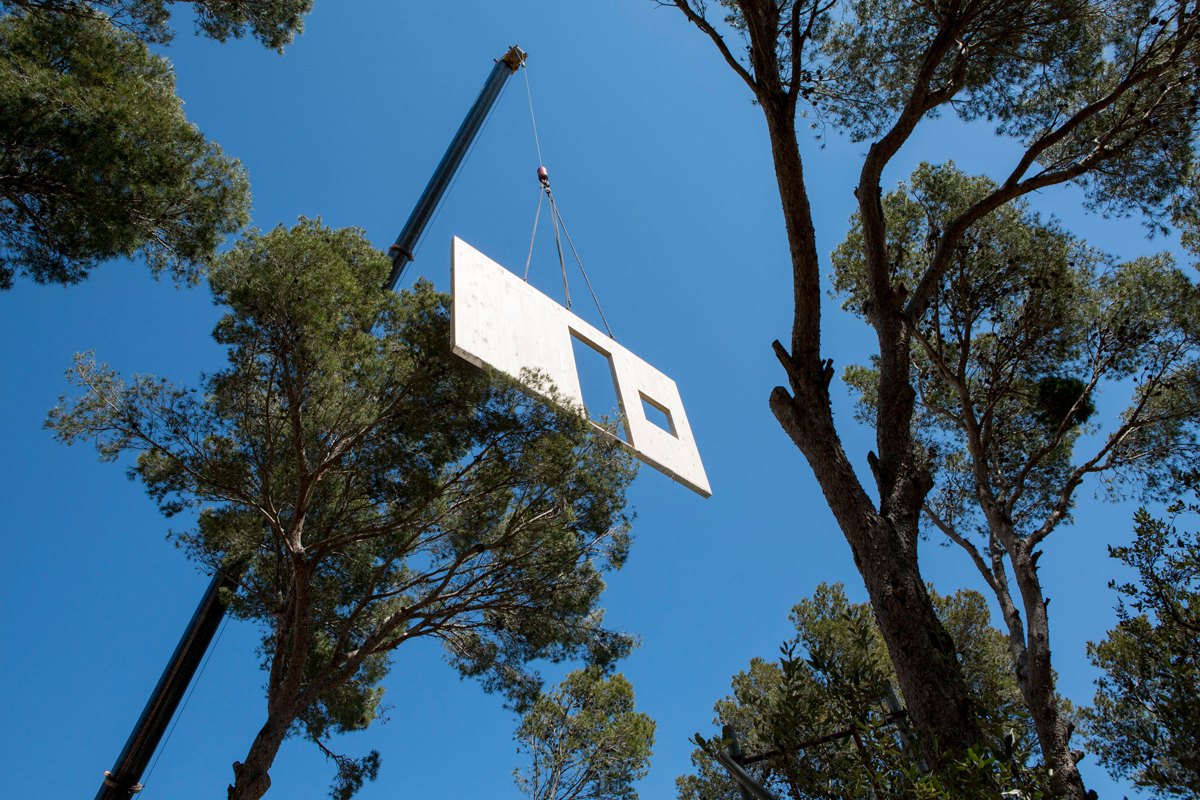
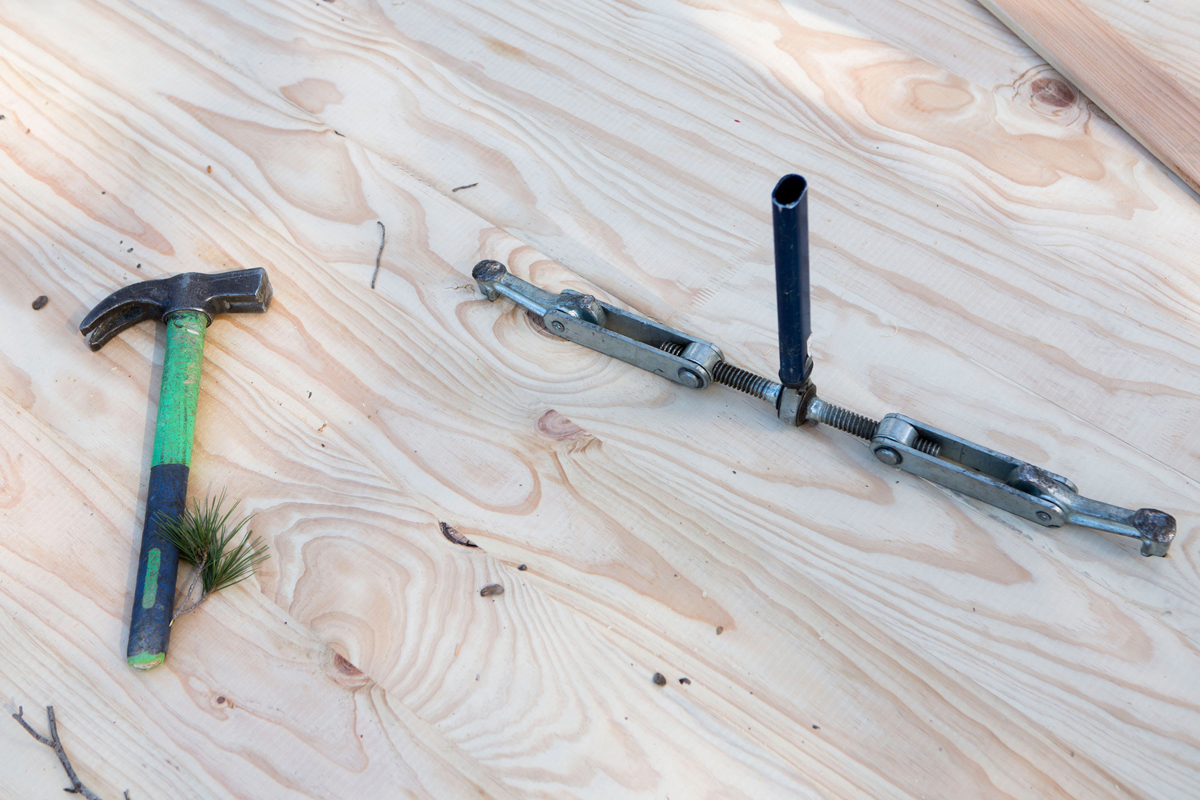
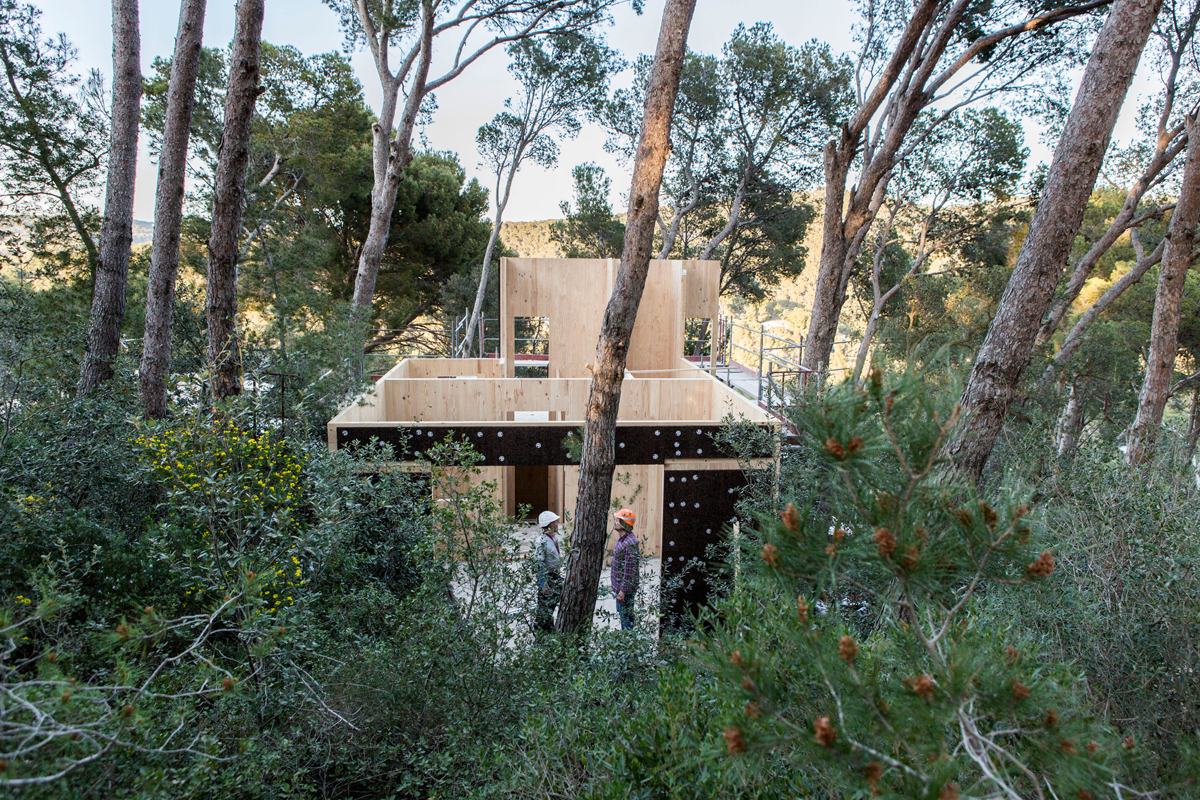
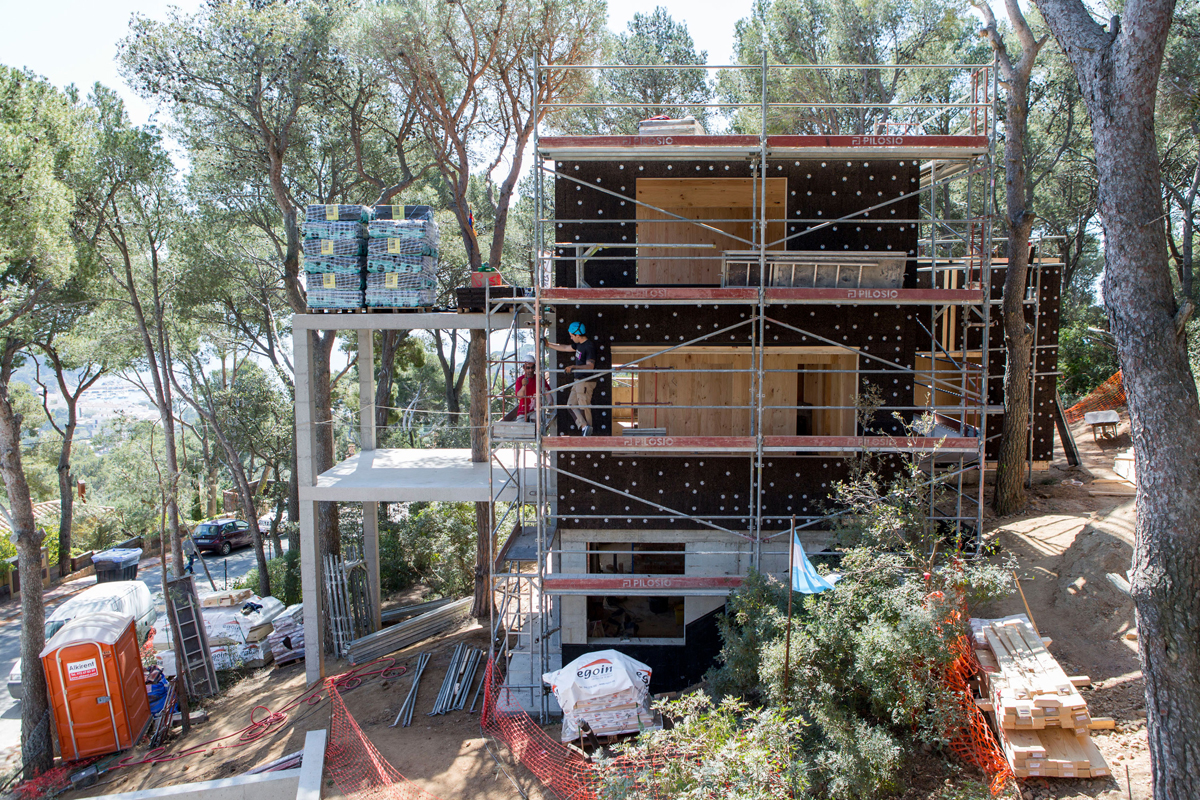

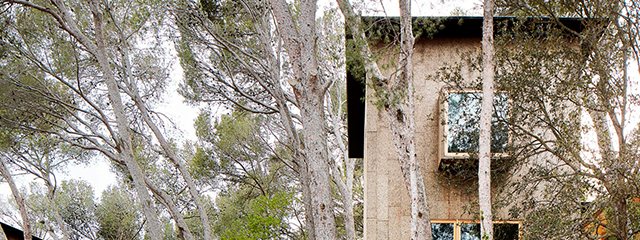
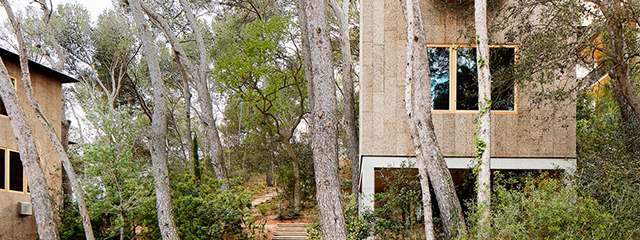

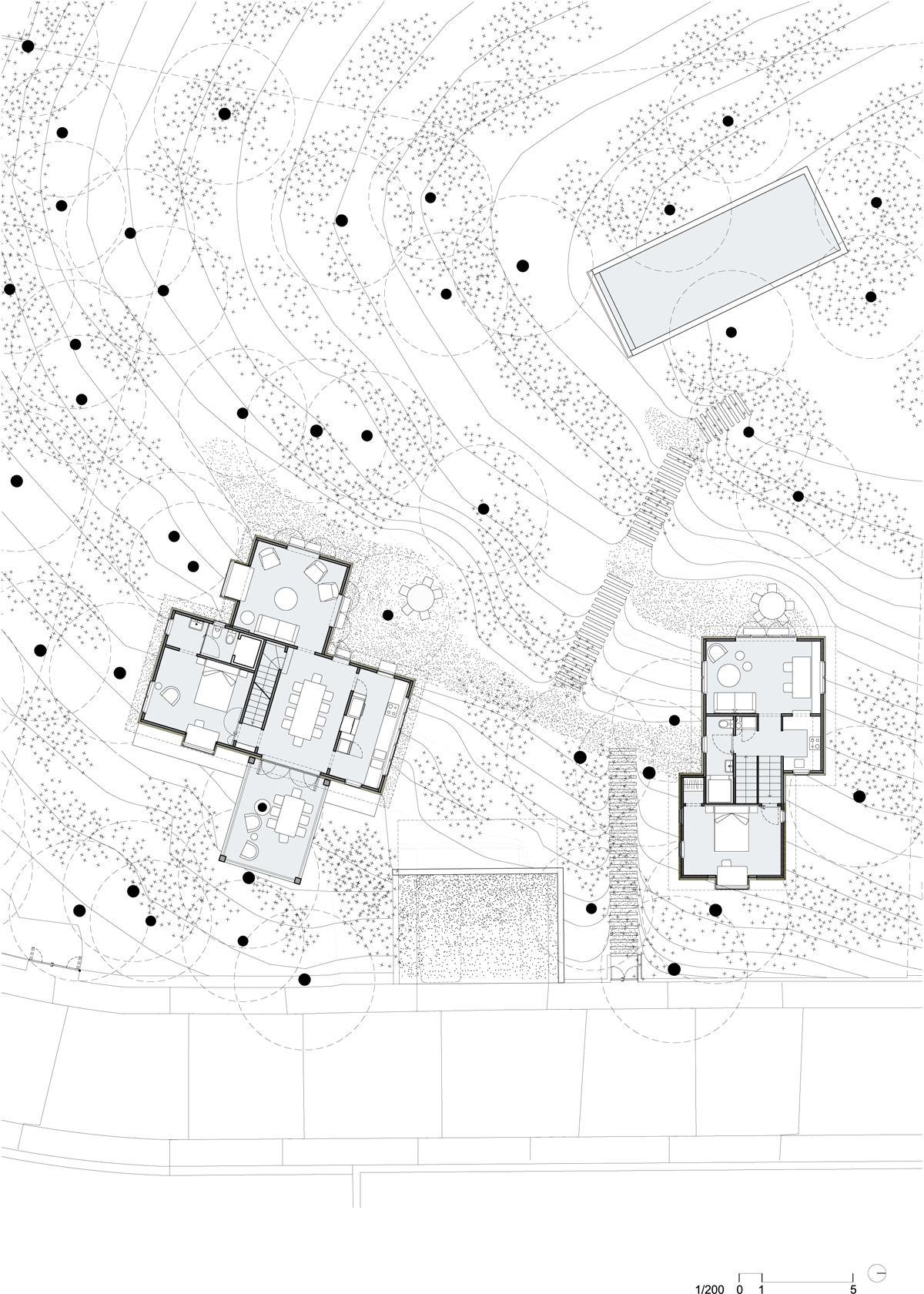
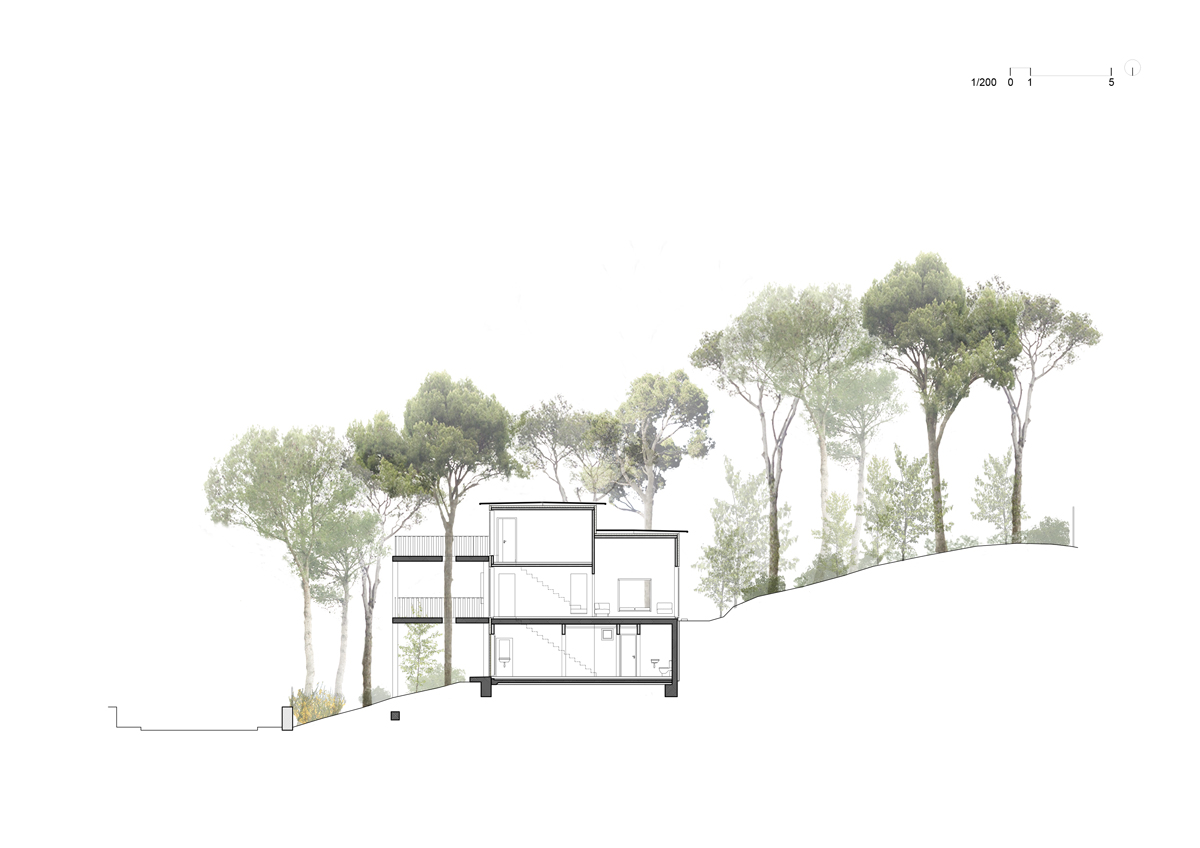
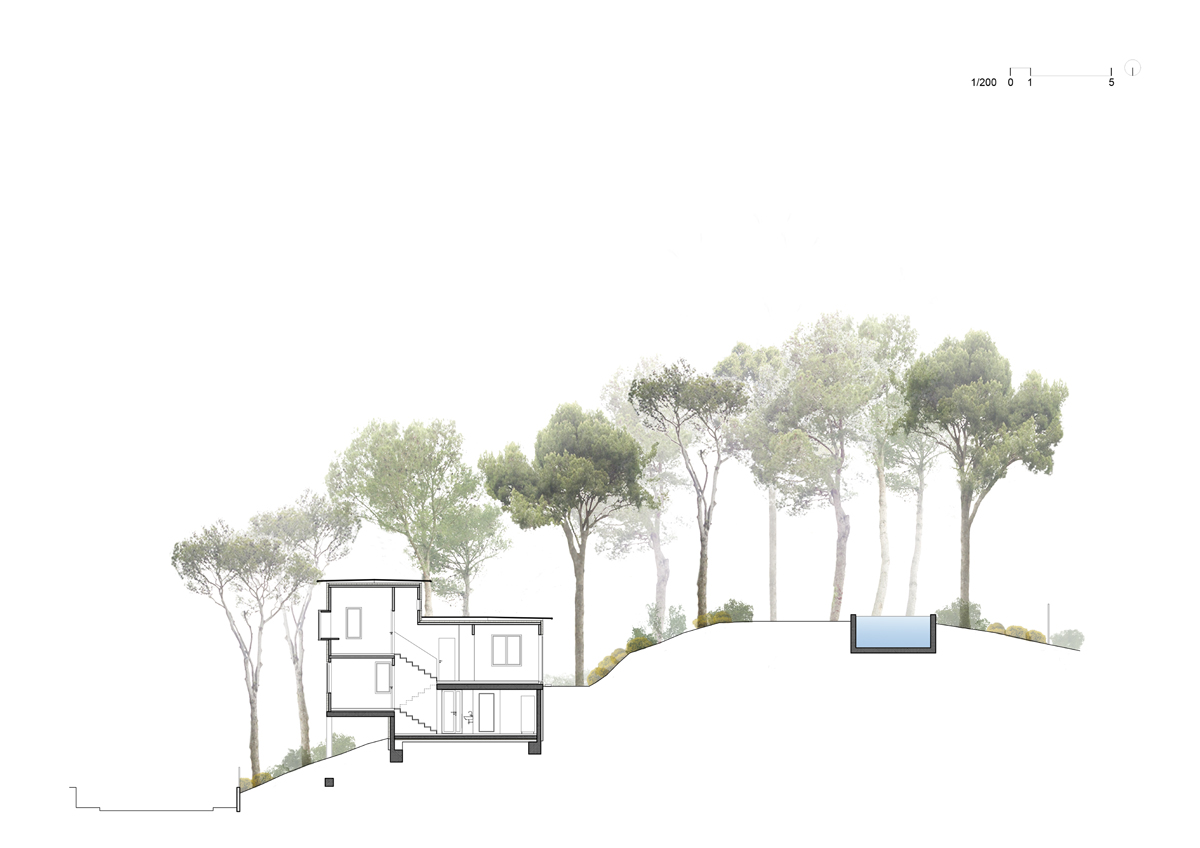
No hay comentarios:
Publicar un comentario